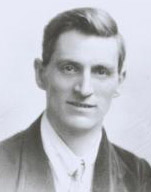Thomas Iredale
| Tom Iredale | |
|---|---|

Tom Iredale in 1923
|
|
| Born |
24 March 1880 Workington, England |
| Died | 12 April 1972 (aged 92) Harbord, Australia |
| Fields | malacology, ornithology |
| Notable awards | Clarke Medal (1959) |
Tom Iredale (24 March 1880 – 12 April 1972) was an English-born ornithologist and malacologist who had a long association with Australia, where he lived for most of his life. He was an autodidact who never went to university and lacked formal training. This was reflected in his later work; he never revised his manuscripts and never used a typewriter.
Iredale was born at Stainburn, Workington in Cumberland, England. He was apprenticed to a pharmacist from 1899 to 1901, and used to go bird watching and egg collecting in the Lake District with fellow chemist William Carruthers Lawrie.
Iredale went on a sea voyage for his health (he may possibly have had tuberculosis). According to a letter to Will Lawrie dated 25 January 1902, he arrived in Wellington, New Zealand in December 1901, and travelled at once on to Lyttelton and Christchurch. On his second day in Christchurch, he discovered that in the Foreign Natural History Gallery of the Museum and Public Library, 2 of 16 English birds' eggs were wrongly identified – Red Grouse egg labelled as Sandpiper, and Moorhen labelled Water Rail.
Iredale became a clerk in a New Zealand company at Christchurch (1902–1907). On 16 April 1906 he married Alice Maud Atkinson in New Zealand, and they had one child, Ida.
In 1908 Iredale joined an expedition to the Kermadec Islands and lived for ten months on these remote islands northeast of New Zealand. Living among and studying thousands of birds, he became a bird expert. He survived by shooting and eating the objects of his study. He also collected molluscs on the island and developed an interest in malacology. As a keen naturalist in those times, he already had a broad interest in nature, but this marked a new turn in his career.
In 1909 he visited Queensland, Australia, collecting about 300 species of chitons and other molluscs. His reputation among his peers was growing, despite the fact that he had no university degree.
...
Wikipedia
